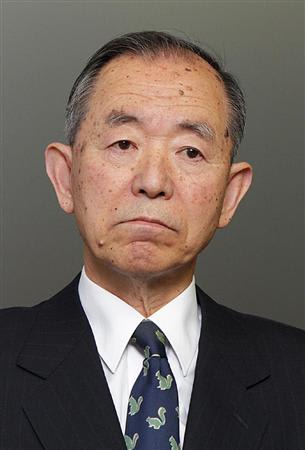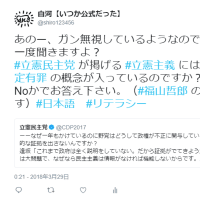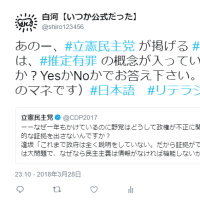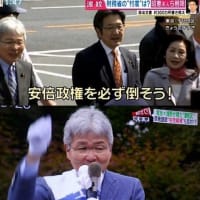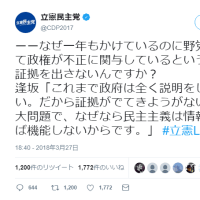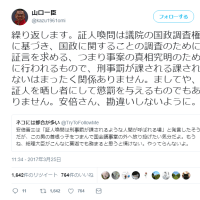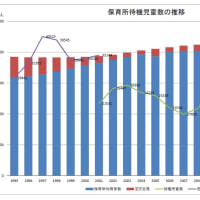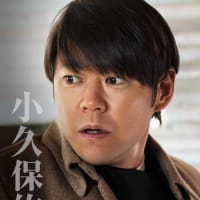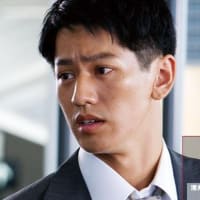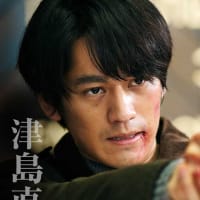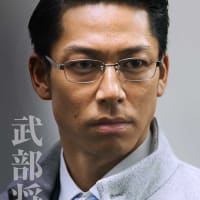昨日の記事で「政府は全く動かない」と書いたが、実際には思い切り逆方向に動いていた。例の、丹羽駐中大使の失言事件である。
失言事件そのものは、イギリスの経済紙 "Financial Times" の記事上での発言だったので、まずその原文を載せる。これが今回の核となる記事であり、いつものように、核となる記事であればなおさら文脈上の意味が重要なので、全文を掲載する。元記事は、無料会員でも読める記事である。
Tokyo warned over plans to buy islands(Financial Times, June 6, 2012 12:56 pm)
By Mure Dickie in Beijing
Japan’s ambassador to China has warned that plans by the Tokyo municipal government to buy islands claimed by Beijing could spark an “extremely grave crisis” between east Asia’s leading powers.
Uichiro Niwa said the proposal, which Tokyo governor Shintaro Ishihara made in April, to purchase islands in the Senkaku group in the East China Sea would put at risk the progress achieved since the countries normalised relations in 1972.
“If Mr Ishihara’s plans are acted upon, then it will result in an extremely grave crisis in relations between Japan and China,” Mr Niwa told the Financial Times. “We cannot allow decades of past effort to be brought to nothing.”
His comments come amid rising territorial frictions in the waters around China. A stand-off between Chinese maritime surveillance vessels and a Philippine navy ship near a contested shoal led to diplomatic protests from Manila, while Vietnam has accused China of sabotaging marine exploration vessels.
Such incidents have boosted support among China’s neighbours for US plans to beef up its naval power in the region. Leon Panetta, US defence secretary, said at the weekend the US would deploy 60 per cent of its naval forces in the Pacific by 2020, up from 50 per cent now.
The Senkaku islands, which are administered by Japan but claimed by China as the Diaoyu, have long been considered one of east Asia’s most dangerous flashpoints. A clash between a Chinese fishing boat and Japanese coastguard in the area in 2010 disrupted diplomatic and economic exchanges for months.
Mr Niwa’s remarks are by far the strongest sign of Japanese central government disquiet over Mr Ishihara’s scheme to buy three of the Senkaku islands.
The central government currently rents the islands and bans landings in order to avoid friction with Beijing. Mr Ishihara, who has long opposed this conciliatory approach, in April announced plans for the Japanese capital to buy them from their private owner for possible development.
Mr Niwa said that while Mr Ishihara’s scheme could face legal and other obstacles, even a possible pre-purchase survey of the islands could be diplomatically incendiary.
Such a crisis would affect business relations, warned Mr Niwa, a former chairman of trading house Itochu and who in 2010 became the first Japanese ambassador to the People’s Republic of China to be appointed from the private sector.
Sino-Japanese economic ties have expanded rapidly in recent decades. Total bilateral trade between Japan and China was more than Y27tn ($345bn) last year, according to Japan’s finance ministry. Japanese foreign direct investment in China soared nearly 50 per cent in 2011 to $6.3bn, Chinese government data show.
Lingering animosity from past conflict and China’s rapidly growing power make the Sino-Japanese relationship one of the world’s most sensitive diplomatic faultlines.
Japanese central government officials have previously offered only low-key reactions to Mr Ishihara’s plans. In April, Koichiro Gemba, foreign minister, called for China and Japan to both deal with the issue “in a calm manner”.
One option for the central government is to buy the islands itself, an approach that the main opposition Liberal Democratic party is considering including in its manifesto for Japan’s next general election.
However, even a central government purchase would likely anger China, which has in recent years been increasingly assertive in pushing its claim to sovereignty over the islands and other disputed maritime territories.
Mr Ishihara’s plan could face obstacles in the form of opposition from the Tokyo municipal assembly or taxpayers complaining city funds could be better spent. But his effort to buy the islands has been bolstered by a wave of public donations to a special account set up to help fund the purchase.
The governor announced on Friday that the fund had received 70,000 donations totalling over Y1bn in just over a month.
“It would be the best if we could buy the islands with donations because we wouldn’t have to use taxpayers’ money,” Kyodo news agency quoted Mr Ishihara as saying.
(ここまで)
<丹羽宇一郎駐中大使。産経新聞より>
英語が読めない人は各ニュースサイトでも参照していただきたい。こういう英字新聞記事を読むにつけ、大学入試時の英語教育は役に立たないどころか、むしろむちゃくちゃ役に立つことを痛感する。「意味のカタマリごとに左から読む」であるとか、「英語では、より長いカタマリは不規則に後ろに飛ぶ」などのルールは、六大学レベル(今では、”GMARCH”などという)以上の大学入試英語では必須と言っていい技術である。英語の語順さえわかれば、あとは単語を品詞に注意して調べるだけでいいのだから。
この問題は、以下の三つの要素に分かれる。
1 丹羽宇一郎駐中大使のいかにもな「小さい」男ぶり。
2 フィナンシャルタイムズの「ウソツキ隆」さんの存在。
3 丹羽だけでなく、小沢一郎なども取り込む中国の「からめ手」のくどさ。
以下詳述する。
1 丹羽宇一郎駐中大使のいかにもな「小さい」男ぶり。
どの会社にも、いかにも仕事ができないバカ丸出しであるのに、上司に取り込んだり多数派工作をするのがうまいせいで、気がつくとぐんぐん出世している「不思議な人」がいるものだ。そんなバカに限って、偉くなればなるほど暴君と化す。私が昔勤めていた会社にも、何人もいたものだ。
丹羽宇一郎という男は、どうやらそういう男であるようだ。櫻井よし子氏がブログで以下のように書いている。
「 丹羽宇一郎在中国日本大使の恥ずべき事なかれ主義外交 」(櫻井よし子ブログ 2012年02月18日)
「Voice」3月号に、2010年7月より在中国日本大使を務める丹羽宇一郎氏へのインタビュー記事が掲載された。私はしばし呆れた。
氏について、赴任当初から気にかかることがあった。氏が著書『新・ニッポン開国論』(日経BP)で老人は退くべしとして、「極端なことを言えば、70歳を過ぎたら全員一線を退くという法律を作った方が良いくらいだ」と書きながら、自身は71歳で大使に就任したことだ。それから1年半が過ぎたいまなお、70歳以上の排除を法制化せよといった氏は、「日中友好に尽くしたい」と現職にとどまる意向だ。
自分以外の70歳以上は引退させるべきだが、自分だけは例外と考える自己愛の驕りの人物に大使職が務まるのか。大使は、日本の国益を最前線で担う。強い意志と国家観、広い視野、洞察力、熱い祖国愛を備えていなければならない。
事件発生当初から中国政府は丹羽大使を呼びつけた。7日に続いて10日には楊潔〓(よう・けつち)外相が、12日深夜には外相より格上の戴秉国国務委員が呼びつけた。「Voice」の同件についての問いに、丹羽氏はまともに答えず、山本五十六の言葉を引用した。「苦しいこともあるだろう。腹の立つこともあるだろう。これらをじっとこらえていくのが男の修行である」。
山本五十六に自身のイメージを重ねるような、自己を客観視できない自画自賛はやめてほしい。五十六は日独伊三国同盟にも日米開戦にも明確に反対だったが、日本が対米開戦を決定すると、祖国のために一身を捧げて戦った立派な日本人だ。
かたや丹羽氏はどうか。「戴秉国氏に深夜に呼びつけられた」ことの実態は、外交素人の丹羽氏がどうしてよいかわからずに対処を本省に尋ね、時間がかかって、ついには深夜に中国政府の扉をたたく羽目になったというのが、私が取材で得た真実だった。
(後略)
まるで、政権を取る前は
「首相経験者は、その影響力を考えて、首相を退任したら政界を引退すべきだ」
と明言しておきながら、いざ首相になり、首相を辞めると、その発言はどこへやら、未だに全く政界を引退する気配のない鳩山由紀夫とうり二つである。民主党政権が、このバカを駐中大使として選んだのは必然以外には考えられない(笑)。
自分が弁解するときになると、歴史上の人物と自分を、都合のいいところだけ重ね合わせようとする根性も、いかにも狡い(こすい)。いわゆる、「頭の悪いほう」の歴史マニアである(苦笑)。
こんなバカが、上のような失言をするのも、時間の問題だったのであろう。
>“If Mr Ishihara’s plans are acted upon, then it will result in an extremely grave crisis in relations between Japan and China,” Mr Niwa told the Financial Times. “We cannot allow decades of past effort to be brought to nothing.”
(白河訳)「もし石原氏の計画が実行されるようになれば、その行為は結果として日中関係に極めて重い危機を生じさせることになるだろう。我々は、過去の数十年にわたる努力を、水泡に帰することを許すことはできないのだ。」
ここで一人称のweを使っているところにも、FTの編集でないのならば、丹羽のいかにもな尊大さが余すところなく表れている。丹羽は伊藤忠商事という民間企業から駐中大使になったのであり、日中国交正常化から今に至るまで、日中間で「商売」は死ぬほどしてきただろうが、「政治的調整」などは、大使就任まで全くしていなかったのである。にもかかわず、
「私たち(We)は、過去数十年にわたる努力が be brought to nothing になることを許せないのだ」
などと、政府見解でないにもかかわらず、平気でweを使った文が使える。まさに竹田恒泰も真っ青の、虎の威を借る狐である。
このバカはとっとと更迭されるべきだ。「バカ」以外に表現のしようがない。このバカが駐中大使として在任している日数だけ、日本の国益は毀損されると考えていい。
2 フィナンシャルタイムズの「ウソツキ隆」さんの存在。
どのマスゴミさんもつっこんでいないが、この記事を書いた Mure Dickie という人間が、他にどういう記事を書いているか、ということも重要な問題だ。というのも、英語の新聞の多くは、日本で言うところの「左巻き」なものが多いからである。私もJapan Timesなどで、外国人記者が書いた記事を読むと、あのウソツキ隆さん以上に、ウソ八百を並べ立て、
「日本は再生可能エネルギーでやっていけるのに、原発再稼働にこだわる」
などという、極めて歪めた報道を平気でやっていることに開いた口がふさがらなくなることも多い。
というわけで、このヒトの他の記事のリンクを。
Tokyo governor in bid to buy disputed islands( Financial Times April 17, 2012 1:34 pm)
By Mure Dickie in Tokyo
The nationalist governor of Tokyo has announced plans for the city to buy islands at the heart of a bitter sovereignty dispute between Japan and China, a gambit sure to fuel simmering territorial tensions between East Asia’s leading powers.
(後略)
・・・石原都知事が、"the nationalist governor" だったら、中国人政治家は全員 "the ultra nationalist politicians" になるだろうが・・・。どの中国人政治家に聞いても、判で押したように中国政府の見解しか繰り返さないのだから。
石原慎太郎レベルを指して "nationalist" と平気で言える言葉づかい。せめて "conservative" と表現すべきだ。
次。
Japanese PM backs nuclear power restart( Financial Times June 8, 2012 5:03 pm)
By Jonathan Soble and Mure Dickie in Tokyo
(前略)
Jeff Kingston, director of Asian Studies at Temple University in Tokyo, said the elaborate choreography of government preparations for the restarts had still failed to persuade the wider population that Japan’s nuclear plants were safe and that the nation could not get through another summer without atomic power.
“The public assessment is that [Mr Noda] is rushing the decision,” Mr Kingston said. “I think the Noda government is underestimating the public backlash.”
Jeff Kingstonという「識者」に語らせてはいるが、この識者(「テンプル大学日本校」というのが怪しすぎる)を選んで語らせているのも不思議だし、 「アジアの地域研究」の専門家に、原発再稼働についてコメントを求めているのも筋違いである。しかも彼に、
「野田総理は決定を急いでいる、というのが一般の認識だ」
「政府は、国民の反発(backlash)を軽く見ている」
などと語らせているのは、
「オイ、それでどこが『アジア地域研究の専門家』の発言なんだよ!」
と言うのに十分である。せめて、国論が二分されていることくらいは「報道」すべきである。しかしこの記事ではしていない。
というわけで、久しぶりに字数がいっぱいになった。その2に続く。










